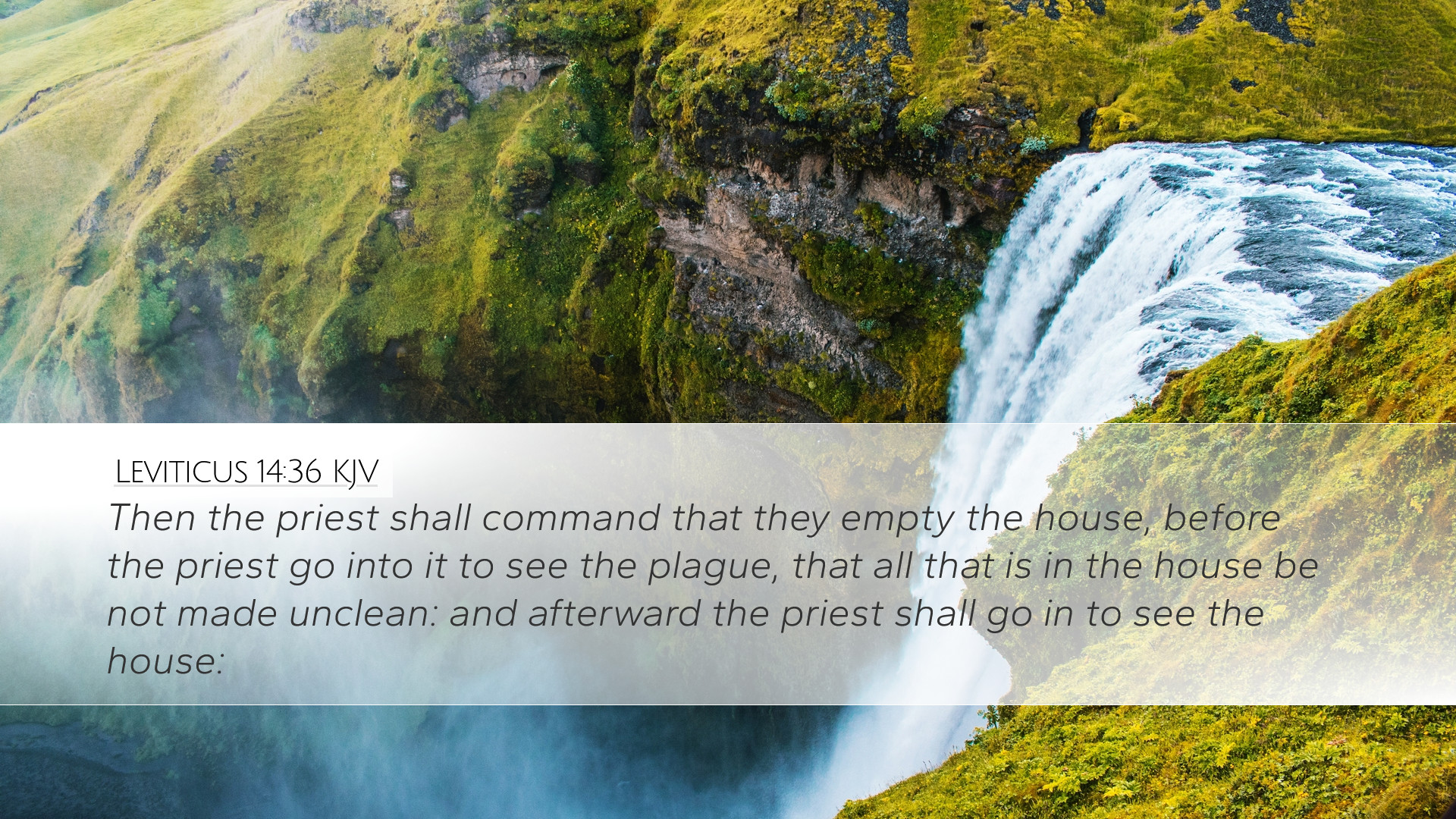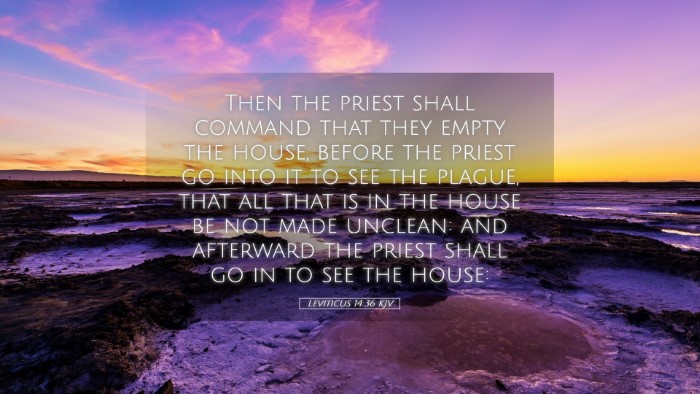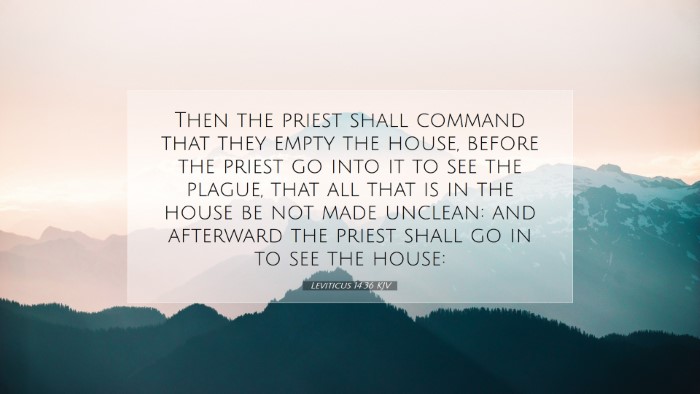Commentary on Leviticus 14:36
Leviticus 14:36 states: "Then the priest shall command that they empty the house, before the priest goes to examine the plague, that all that is in the house may not be unclean; and afterward the priest shall go in to see the plague."
Contextual Overview
The book of Leviticus provides Israel with guidelines for maintaining purity and holiness. The chapters surrounding Leviticus 14 focus on laws regarding leprosy, a severe skin disease that not only rendered individuals unclean but had communal and social ramifications. The chapter highlights the importance of the priest's role in discerning cleanliness and managing the social dynamics inherent in Israelite society.
Insights from Public Domain Commentaries
Matthew Henry
Matthew Henry emphasizes the procedural aspect of this verse, noting that the priest's role is essential in the process of purification. The command to empty the house before assessment aims to prevent further spreading of contamination. Henry connects the physical act of cleansing with spiritual implications, suggesting that God desires His people to maintain both physical purity and moral cleanliness.
Albert Barnes
Albert Barnes draws attention to the significance of the priest's examination. He comments on the need for separation prior to the priest's entrance, highlighting the importance of discerning the nature of the plague in the house. The directive to empty the house not only serves a practical purpose but reflects the seriousness with which God views contamination and sin. He posits that spiritual examinations are necessary for the health of the community.
Adam Clarke
Adam Clarke delves deeper into the implications of this verse concerning communal health and purity. He remarks that the command to eliminate all items from the house indicates a complete break from any form of idolatrous practices or impurities that the house may harbor. Clarke sees this as a tangible representation of the spiritual need to cleanse the heart from all forms of sin, reinforcing the theme of separation from impurities, both physical and spiritual.
Theological Reflections
The theological implications of this verse resonate with modern readers. The act of clearing the house symbolizes a necessary preparation for divine scrutiny. Just as the physical house must be empty for the priest's examination, so too must individuals prepare their hearts for God's inspection. This underscores the biblical theme of holiness—God desires a pure dwelling both physically in the nation of Israel and spiritually within the hearts of believers.
Applications for Today
For pastors, spiritual leaders, and scholars, the principles derived from Leviticus 14:36 can be applied in various areas:
-
Preparation for Ministry: Just as a house must be cleared for assessment, leaders today should dedicate time for personal reflection and confession before engaging in ministry or leading others.
-
Community Health: This verse serves as a reminder of the communal aspect of faith. Churches must prioritize the physical and spiritual health of their congregations, ensuring that they address issues of sin and impurity within the community.
-
Spiritual Cleansing: The act of purging impurity can be applied to spiritual disciplines. Followers of Christ are called to examine their lives regularly, repenting of any sin that might lead to spiritual uncleanliness.
Conclusion
Leviticus 14:36, while rooted in the ancient context of the Israelite community's health regulations, carries timeless truths regarding purity, community, and the importance of being prepared for divine scrutiny. Drawing from the insights of Henry, Barnes, and Clarke allows modern readers to grasp the significance of God's call for holistic cleanliness in both body and spirit. In a world rife with moral ambiguity, this passage challenges leaders and believers alike to engage in deep self-examination and communal accountability, ensuring that both their personal lives and their congregations reflect the holiness of God.


